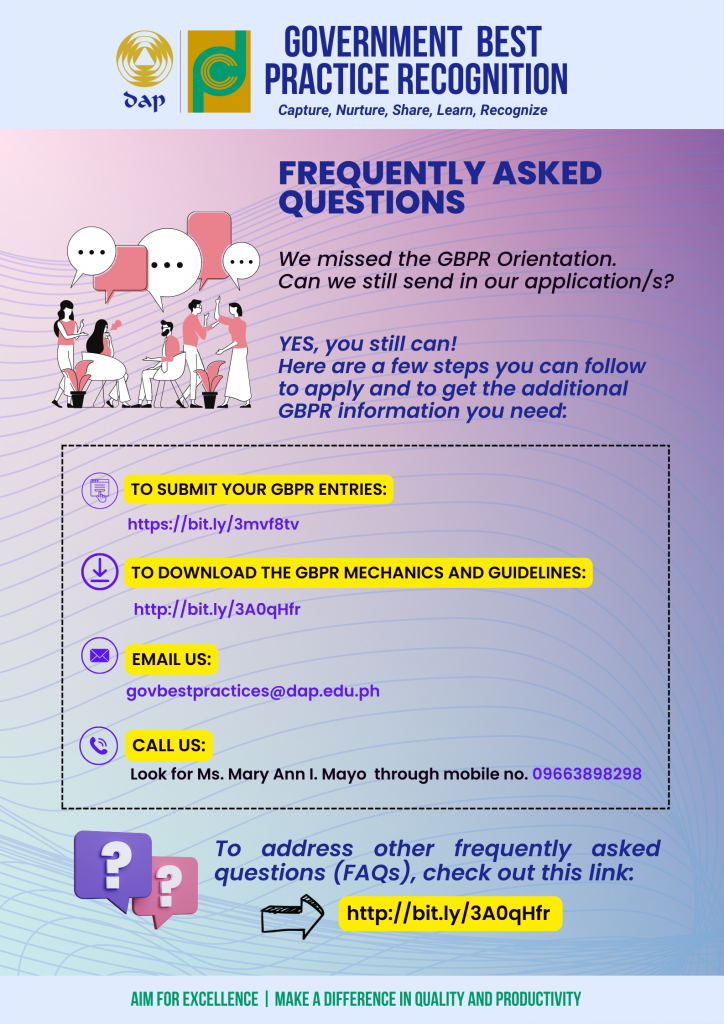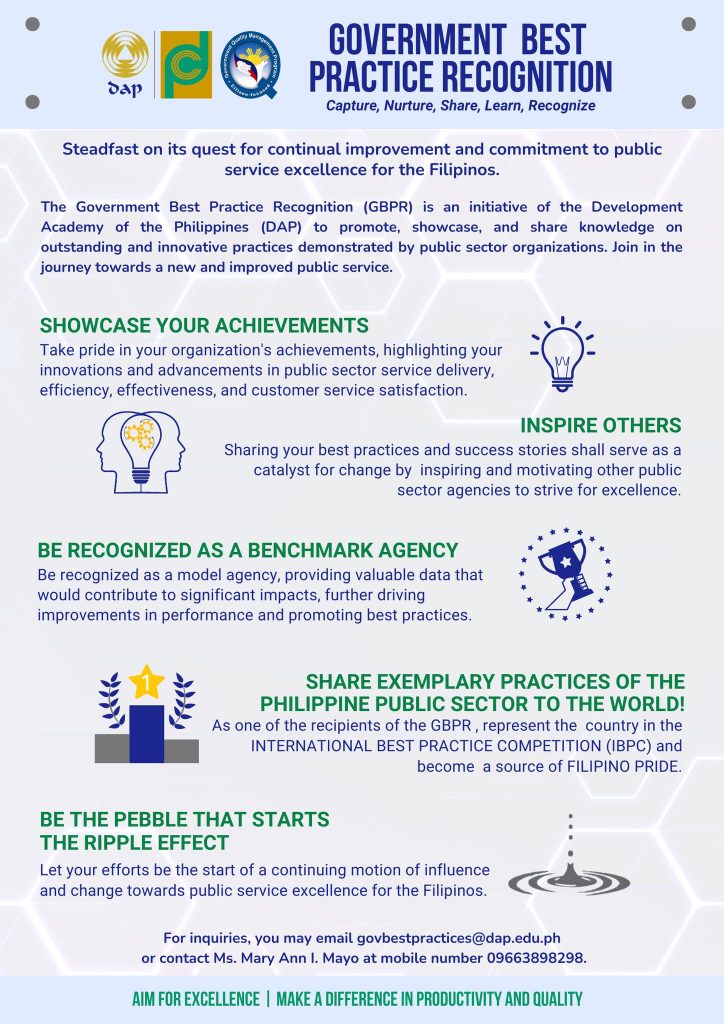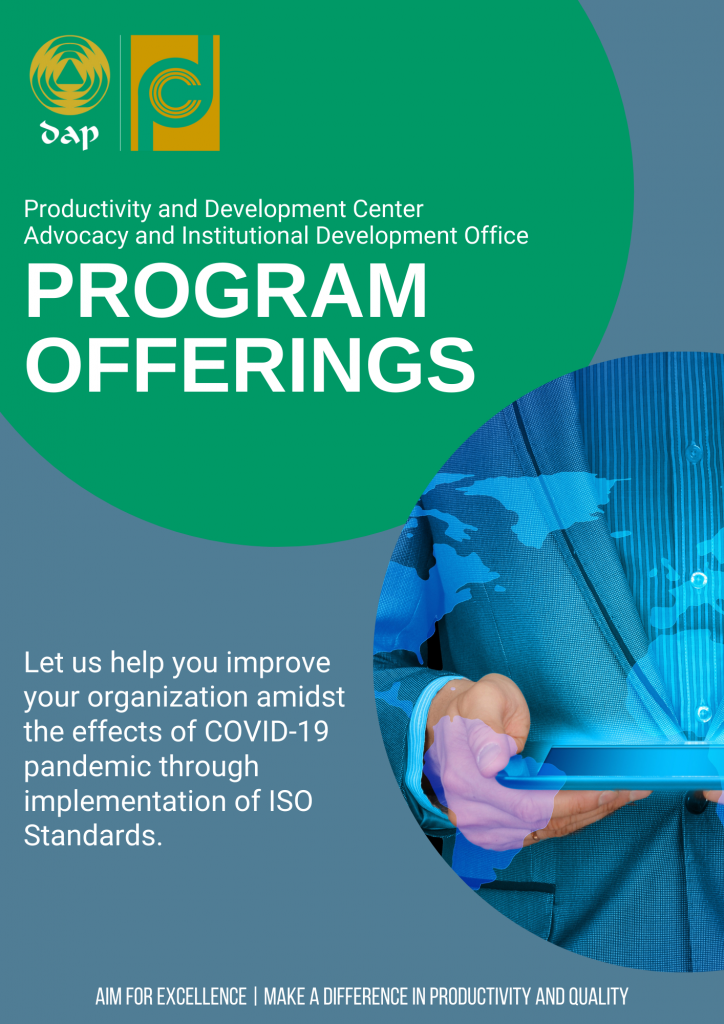With growing numbers of agencies adopting an international standards-based QMS, the PDC-Productivity and Development Research Office (PDRO) is challenged to determine the level of satisfaction of citizens and businesses with the government, based on their experience in transacting with various government agencies and offices across regions and jurisdictions. Thus, in line with the Philippine Development Plan’s goal of seamless service delivery, and the current administration’s efforts to listen to the people and meet their needs, PDRO’s five-year project on “Institutionalizing SQS” from 2018-2022 under the GQMP, conducted a research on “SQS Towards Public Service Excellence: A Study on the Quality of Frontline Public Service Delivery in the Philippines.”
In 2018, the study focused on measuring the satisfaction level of Government-to-Citizens transactions while in 2019, the study focused on measuring the satisfaction level of Government-to-Businesses transactions. The study design is based on international best practices on research on citizen-centered public service delivery. The results of the research study serve as vital inputs to the QMS requirement of listening to stakeholders and clients and adjusting the system to improve service delivery and guarantee client satisfaction, thereby helping steer the bureaucracy towards a more citizen-centered service delivery consciousness and culture of quality.
Moreover, this initiative supports the goals of Republic Act 11032, otherwise known as the Ease of Doing Business and Efficient Government Service Delivery Act. The intent of the study is not only to find out the satisfaction level of citizens and businesses with the government but also to find out what they consider important attributes of service quality. From the research findings, government agencies can come up with frontline service standards and, more importantly, gear towards service improvements. With this information, frontline government agencies would know what level of performance may guarantee satisfaction of the transacting public.
The data gathering activities were conducted in four mega areas in NCR, Luzon, Visayas, and Mindanao covering five local government units and 12 national government agencies clustered into civil/business registration, employment and licensing, interior and local government, One-Stop-Service Center for Overseas Filipino Workers, and social services.
Highlights of the study, including the developed SQS were presented during the Symposium on Measuring Service Quality of Frontline Government Service” on July 20, 2019, the 7th GQMC Recognition Ceremony on October 24, 2019, and the Executive Session on Citizen-centered Service Delivery on November 8, 2019.


















